This paper discusses the impact of dating applications on self-esteem, particularly in the younger generation. The introduction explains how dating applications have become prominent places to find romantic partners. The literature review includes an overview of the use of dating applications in Japan, which commonly require men to pay, and a review of previous research on self-esteem in younger people. The primary research aims to investigate the link between dating applications and self-esteem. The study recruited 79 participants and used t-tests to explore the statistical significance between the use of dating applications and their self-esteem. Although statistical significance was not found based on the research, answers collected from the questionnaires imply that the frequent use of dating applications might be linked to lower self-esteem. The study concludes that caution should be exercised when using dating applications and provides suggestions for future research.
I. Introduction
Dating applications are online applications that can be accessed via smartphones or computers and link people interested in love, sex, or friendship. Dating applications are matching services that connect people having similar needs (Haraguchi 151), and in 2019, approximately 90 million individuals used one or more dating applications (Orchard). The emergence of dating applications has significantly changed how people approach and engage in romantic relationships, making finding a partner more effortless and efficient. Dating has undergone a significant transformation over the past 20 to 30 years with the rise of dating applications. Before the advent of dating applications, people typically met potential romantic partners through friends, work, or other social connections. However, with the rise of the internet and mobile devices, dating applications have become convenient and popular for people to meet new partners. Dating applications use algorithms to match users based on shared interests, values, and preferences, making finding a compatible partner easier and more efficient. Additionally, dating applications allow users to communicate and connect with potential partners from the comfort of their own homes, eliminating the need for the traditional, time-consuming process of meeting someone in person. A survey conducted by Mobile Marketing Data Labo in 2022 showed that 38.4 percent of people have had a relationship or are married by meeting via dating applications (Ito). These findings illustrate that it has already become one of the most prominent places to find partners.
However, some people caution against dating applications because of their impact on self-esteem. Self-esteem is a person's perception of worth or the degree to which they value, belief, enjoy, or like themselves (Becerra). Self-esteem influences motivation, functional behaviour, and happiness and is strongly linked to overall well-being. Low self-esteem leads to undesirable outcomes, such as increased adolescent pregnancy rates, addictions, aggression, despair, anxiety, and suicide (Guindon). Miyadai argues that self-esteem can be broken down when one loses dignity. 'dignity' is the self-esteem gained through free trial and error in social relationships (115). Especially for younger generations, self-esteem can be damaged much more easily. Hence, people should evaluate their impact on self-esteem to evaluate the issue of dating applications.
There has been no research on how dating applications influence self-esteem. However, as more people from the younger generations use dating applications, assessing the impact of self-esteem is critical in understanding the factor in young people's sexual behaviour.
II. Literature review
1. Literature review of dating applications
Since the first dating application, "Match.com", launched in 1995, numerous dating applications have been used worldwide, and several studies have been done. Notably, in 2012, as a smartphone started to spread worldwide, 'Tinder,' which has 7.8 million users from 197 countries, started their service (World Population Review). The most popular dating application in Japan 'Pairs' was also launched in 2012, and 'Tapple' and 'With', which have second and third users, also started in 2014.
To consider the number of users of dating applications in Japan, Mobile Marketing Data Labo surveyed 10,000 smartphone users aged 20 to 49. They found that 32.5 percent of respondents knew what dating applications are, and half had used or used them. Pairs, With, Tapple, Omiai, and Tinder are the most used applications. It might be surprising that more than half of them have met people through dating applications, and 74.8 percent of respondents recommend them. Notably, dating applications created by Japanese companies are inclined to be used only in Japan or by Japanese people living abroad. Thus, one question arises: What are the characteristics of Japan-made dating applications? One big difference is that many Japan-made dating applications require only men to pay money. Fundamentally, people can use the applications for free, but to use additional functions, such as sending e-mails and checking who liked their profile. On the other hand, most applications let women use them entirely for free, so women tend to use them easily and have more power than men. In addition, almost all applications have more male users. They require them to pay if they want to use additional functions such as sending messages and seeing who sends “Likes” to themselves, which creates a situation where women have much more options than men.
2. Literature review of self-esteem
Self-esteem is commonly used to relate to the affective or emotional part of oneself. It typically refers to how a person feels about or regards oneself (Crocker). This part focuses on the factors influencing children's and adolescents' self-esteem. A research group at Shizuoka University studied what influences junior high school students' self-esteem in Japan. They found that compared to friendships and relationships with teachers and parents, critical thinking, particularly 'awareness of logical thinking' and 'inquisitive mind', were strongly associated with self-esteem (Kato). Another research explored university students' self-esteem. They found that family integration, relationship with parents, past school strengths and fulfilment, past and current university friendships, and self-acceptance were associated with university students' self-esteem (Toyoda). Monideepa Becerra, a professor at California State University, also studied self-esteem among university students. Becerra evaluated self-esteem scores by biological sex and discovered that women had considerably lower self-esteem scores than males. For example, women were less likely than males to report feeling content with themselves and thinking favourably of themselves but more likely than males not to feel good at all, wishing they had much more self-respect, and feel depressed when it came to hostile areas of self-esteem (Becerra).
III. Primary Research
1. Purpose
This study examines if the usage of dating applications affects self-esteem. As discussed above, several studies about dating applications and self-esteem have been conducted. However, the relationship between the two topics has not thoroughly investigated. Hence, this research will examine if significant differences exist in self-esteem between groups of people who use dating applications and those who do not and if common patterns can be observed in student responses about dating applications. Dating applications offer ways to connect people; these algorithms will likely be used in other ways. Therefore, it is essential to consider the impact of dating applications on individuals through this study.
2. Hypothesis
This experiment hypothesised that dating applications have both positive and negative influences on self-esteem but have more impact on decreasing one’s self-esteem. The positive impact might be due to having a lot of “Likes”, which is a tool for showing affection towards others. One expected reason people might positively impact self-esteem is that they would consider getting approval from others as they get more and more “Likes”. Another reason is that people get positive comments towards them. Dating applications have the functionality to have conversations after a “match”, which means both people “Like” each other. Women especially get innumerable compliments about their appearance or personality.
However, as shown in the “Introduction”, some people might not improve their self-esteem by using dating applications. Since the dating application allows users to approach multiple people simultaneously, they are less likely to be happy even if they receive a ”Like” or a compliment. In addition, they may feel less confident about themselves if they receive fewer ”Likes” or conversations but do not go on to meet in person.
3. Materials
The following experiment used a Google form to distribute a survey. The record contains 17 questions. The first two questions ask participants to answer some basic information about themselves. Ten questions are about their self-esteem, while the last five ask about their use of dating applications. This experiment uses two observation materials; *Rosenberg Self-esteem Scale and the research by Mitsubishi UFJ Research and Consulting. Rosenberg’s self-worth assessment tool comprises ten items that measure positive and negative feelings towards oneself. All items are recorded using a 4-point Likert scale ranging from "strongly agree" to "strongly disagree." The Cronbach's alpha coefficient has verified the scale's internal consistency, and its stability has been tested through the retest method.
4. Procedure
This experiment aims to find a connection between self-esteem and how people use dating applications. First, the self-esteem of participants is scored. Participants are given 1 point for answering “Strongly Disagree”, 2 points for “Disagree”, 3 points for “Agree”, 4 points for “Strongly Agree”, 3 points for “Agree”, and 4 points for “Strongly Agree”. Some items are reversed scores due to the wording of questions, which are italicised. All scores are summed. Higher scores indicate higher self-esteem. Participants were then asked to answer seven questions about their use of dating applications. At last, they wrote a sentence about how dating applications influenced their self-esteem. T-tests were used to compare and investigate whether there is a significant difference between the usage and dating applications and self-esteem. The t-test and p-value are first defined to confirm the data's validity. T-test compares one’s usage of dating applications and their influence on self-esteem. It is a statistical hypothesis testing method used to determine if there is a significant difference between the means of two groups. It compares the means of two groups to determine whether the difference is substantial or could have occurred by chance. The p-value is used to determine the significance of the results. The result is considered statistically significant if the p-value is less than a predetermined significance level, which is 0.05.
5. Observations
79 valid responses were collected; the information is shown in Chart 1, Chart 2, and Table 1 below.
Chart 1:Differences in Self-esteem scores when categorised with and without dating application use.

Chart 1 first classifies those who answered 'Yes' to 'Have you ever used dating applications' into those who answered 'No'. The horizontal axis is the number of people in the score, and the vertical axis indicates the distribution of each person's total self-esteem score.
Chart 2: Differences in Self-esteem scores when categorised with and without dating application use and gender.
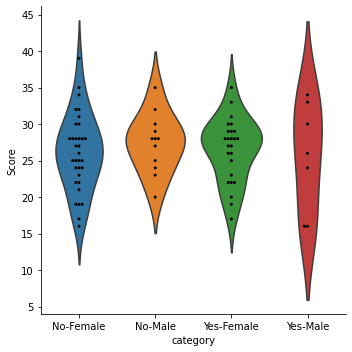
Chart 2 compares males' and females' self-esteem scores. The vertical axis represents the self-esteem score. The inflated areas of each graph are the areas where more people got that score.
Table 1: T-test results
Rosenberg Self Esteem Scale | P-Value |
1. On the whole, I am satisfied with myself. | 0.1972 |
2. I feel that I have a number of good qualities. | 0.1465 |
3. I am able to do things as well as most other people. | 0.4433 |
4. I feel that I'm a person of worth, at least on an equal plane with others. | 0.1131 |
5. I take a positive attitude toward myself. | 0.1302 |
6. I take a positive attitude toward myself. | 0.3129 |
7. At times I think I am no good at all. | 0.3319 |
8. I feel I do not have much to be proud of. | 0.3172 |
9. I wish I could have more respect for myself. | 0.1018 |
10. All in all, I am inclined to feel that I am a failure. | 0.4921 |
Total | 0.4401 |
Table 1 compares the score of each question about self-esteem and their usage of dating applications. As a result, all p-values of the questions were above 0.05. The most significant and irrelevant number was 0.492 in question 10. On the other hand, the lowest number was 0.102 in question 9. However, all scores were higher than 0.05, so it can be concluded that this experiment could not find a significant difference in self-esteem between groups that used dating applications and those that did not.
This experiment also asked participants to respond to the question, *“Do you think your self-esteem has increased or will increase as a result of using a dating application?” Nineteen responses were tallied.
6. Discussion
The data above represent the statistical difference between dating applications and self-esteem in the experiment. First, from Chart 1, there were no significant differences between the self-esteem of those who had used dating applications and those who had never used them. Overall, the scores of those who have used dating applications tend to be slightly higher, but this alone cannot be used to assert the influence of dating applications on self-esteem.
In addition, Chart 2 compares the data from Chart 1 by biological sex in a pyramid shape. The results show that the mean values for both men and women are almost equal regardless of whether they have used a dating application. However, the shape of the graphs for No-Female and Yes-male and No-Male and Yes-Female are very similar, suggesting that dating applications may be counterproductive for different biological sex.
Chart 3 shows the results of the t-tests. This chart shows that dating applications' impact on self-esteem differs depending on the question. However, as a whole, the p-value is higher than 0.05, meaning there is no statistically significant difference.
In summary, this experiment did not provide a straightforward solution to dating applications' impact on self-esteem. However, how do responses from the questionnaires reflect the effects of dating applications? While some people's self-esteem increases when they receive “Likes" and compliments on their appearance, as hypothesised, others tend to wonder why they are getting “Likes" and to lose trust in the viewership of the compliments they receive. One response shows this tendency clearly. “In the sense of being matched or being told unconditionally that I am pretty, my self-esteem increases for a moment. However, after a while, I felt uncomfortable being told I wanted to go out with someone based on their looks alone.” Even if a person uses a dating application to meet people in person and engages in sexual activity, there seems to be a tendency for people to feel emptiness after the encounter so that they might only have a temporary feeling of elation.
Unfortunately, this experiment has limitations; the number of participants, the research method, and imbalance in the biological sex of the participants. First, 79 valid responses were collected from the participants in the primary research. This experiment succeeded in finding some sense of trends in dating applications and self-esteem. However, the data would have shown a more significant tendency if more participants had participated. In addition, this cross-sectional study allowed participants to answer only one survey at once. The types of study limit the time. Using a longitudinal study that observes participants repeatedly, it might be possible to discover changes in self-esteem as they use dating applications for longer. Furthermore, imbalance in the biological sex of the participants might have affected the results of the experiment. 59 out of 79 participants were females, while only 19 were males. This implies that the gender gap shown in Chart 2 might not accurately display the differences between males and females, which should be necessary to eliminate those gaps in further research.
IV. Conclusion
In conclusion, dating applications have changed how people approach and engage in romantic relationships. These applications allow people to find their partner more easily and find people they would not have met initially. By getting “Likes” and meeting them, some people feel they are approved by others and gain self-confidence. On the other hand, the study revealed that dating applications could also negatively influence one’s self-esteem because of the characteristics that allow one to approach several people simultaneously. People feel happy to get “Likes” and compliments at first. Still, compliments gradually become increasingly fake, and no matter how many compliments they receive, they find it hard to be pleased anymore. Even if they enjoy the relationship, they may be covered by a sense of emptiness afterwards.
The tendency of decreasing self-esteem in Japan might be more evident in the future, but more studies should be conducted. The following research needs to be done: the longitudinal study and international comparisons. Comparing across the country is essential since the dating application is already spread worldwide. The influence on self-esteem found in the primary research could be inaccurate because another critical factor, such as being Japanese, might be influenced. Hence, by comparing across the country, country bias might be reduced and possibly find a new aspect of the impact on self-esteem.
Although people need to be careful of using dating applications because of their negative influence on self-esteem, it is crucial to understand that dating applications can potentially expand their encounters and positively impact users' self-esteem. Compared to traditional dating methods, dating applications can do this by providing users with a broader pool of potential partners to connect with. This can be especially beneficial for individuals with limited dating opportunities due to geography or social anxiety. Some people consider dating applications dangerous and a tool only for making friends with benefits. However, people should instead perceive it as a being with the potential to be better and use it wisely.
Works Cited
Becerra, Monideepa B., et al. "Self-Esteem among College Students: The Intersectionality of Psychological Distress, Discrimination and Gender." Journal of Public Mental Health, vol. 20, no. 1, 2021, pp. 15-23. ProQuest, https://www.proquest.com/scholarly-journals/self-esteem-among-college-students/docview/2533490029/se-2. Accessed 27 Jan, 2023.
Crocker, Jennifer, and Connie T. Wolfe. "Contingencies of Self-Worth." Psychological Review, vol. 108, no. 3, 2001, pp. 593-623. ProQuest, https://www.proquest.com/scholarly-journals/contingencies-self-worth/docview/614356738/se-2, accessed 28 Jan, 2023.
Gnambs, Timo, Anna Scharl, and Ulrich Schroeders. "The Structure of the Rosenberg Self-Esteem Scale: A Cross-Cultural Meta-Analysis." Zeitschrift Für Psychologie/Journal of Psychology, vol. 226, no. 1, 2018, pp. 14-29. ProQuest, https://www.proquest.com/scholarly-journals/structure-rosenberg-self-esteem-scale-cross/docview/2001082153/se-2. Accessed 10 Feb, 2023.
Guindon, Mary H. Self-Esteem Across the Lifespan: Issues and Interventions. Edited by Mary H. Guindon. Taylor and Francis, London, 2009.
Haraguchi, R., and Y. Takehana. "[University Students' use of Dating Applications and Influence Factors.] (Mattingu Sa-Bisu・apuri no Daigakusei no Riyou Zittai to Eikyou Youin)." Tokyo Gakugei Univ. Division of Arts and Sports Sciences, vol. 71, 31 Oct, 2019, pp. 151-162, http://ci.nii.ac.jp/books/openurl/query?url_ver=z39.88-2004&crx_ver=z39.88-2004&rft_id=info%3Ancid%2FAA12079728. Accessed 24 Jan, 2023.
Hayashi, Yusuke. Ishikawa, Yukari. &Kato Shuichi.[Contemporary Sexuality of Young People: A National Survey of Young People's Sexual Behaviour and a Combined Approach.] (Wakamono-no Sei-no Genzaichi: Seishonen-no Seikodozenkokuchosa-to Fukugotekiapurochi-Kara Kangaeru). Keisoshobo, Tokyo, 2022.
Hiromichi Kato, et al. "A Research on Prevention Factors of Dropping Self-Esteem during Adolescence." Shizuoka University REpository, vol. 63, 2013, pp. 135-143, https://shizuoka.repo.nii.ac.jp/?action=pages_view_main&active_action=repository_view_main_item_detail&item_id=6200&item_no=1&page_id=13&block_id=21. Accessed 28 Jan, 2023.
Ito, Minami. "[2022 Survey on the use of Dating Services and Apps] (2022 Nen Mattingu Sa-Bisu・Apuri no Riyou Zittai Tyousa).", 5 Oct, 2022, https://mmdlabo.jp/investigation/detail_2123.html#:~:text=%E6%AC%A1%E3%81%AB%E3%80%81%E3%83%9E%E3%83%83%E3%83%81%E3%83%B3%E3%82%B0%E3%82%B5%E3%83%BC%E3%83%93%E3%82%B9%E3%83%BB%E3%82%A2%E3%83%97%E3%83%AA,%E3%81%82%E3%82%8B%E3%81%93%E3%81%A8%E3%81%8C%E3%82%8F%E3%81%8B%E3%81%A3%E3%81%9F%E3%80%82. Accessed 27 Jan, 2023.
Mitsubishi UFJ Research and Consulting. "[Results of a Survey on the use of Dating Applications] (Mattingu Apuri no Riyou Zyoukyou Ni Kan Suru Anke-to Kekka).", 2021, https://www.caa.go.jp/policies/policy/consumer_policy/caution/internet/assets/caution_internet_220121_0002.pdf. Accessed 10 Feb, 2023.
Miyadai, Shinji. [Teaching about Love from Secondary School: Let's Talk about 'Love and Sex' that Schools Don'T Teach Us.] (Tyuugakusei Kara no Ai no Zyugyou : Gakkou Ga Osi E Te Kure Nai 「 Ai to Sei 」 no Hanasi Wo Siyou). CORE MAGAZINE, Tokyo, 2015.
Orchard, Trenna. "Dating Apps.", 2019, https://www.researchgate.net/publication/336495952_Dating_Apps. Accessed 24 Jan, 2023.
Toyoda Kanako, and Matsumoto Tsuneyuki. "[A Study on Factors Related to Self-Esteem of University Students] ( Daigakusei no Zisonsin to Kanren Suru Syo Youin Ni Kan Suru Kenkyuu)." Bulletin of the Institute of Human Sciences, Toyo University, no. 1, 2004, pp. 38-54, https://www.toyo.ac.jp/uploaded/attachment/753.pdf. Accessed 28 Jan, 2023.
Welsch, Robin, et al. "Test–Retest Reliability and Temporal Agreement of Direct and Indirect Sexual Interest Measures." Sex Abuse, vol. 33, no. 3, 2021, pp. 339-360, https://doi.org/10.1177/1079063220904354. Accessed 22 Jan, 2023.
World Population Review. "Tinder Users by Country 2023.", 2023, https://worldpopulationreview.com/country-rankings/tinder-users-by-country. Accessed 27 Jan, 2023.
Appendix
Appendix 1. Rosenberg Self-esteem Scale
1. On the whole, I am satisfied with myself.
Strongly Agree/Agree/Disagree/Strongly Disagree
2. At times I think I am no good at all.
Strongly Agree/Agree/Disagree/Strongly Disagree
3. I feel that I have a number of good qualities.
Strongly Agree/Agree/Disagree/Strongly Disagree
4. I am able to do things as well as most other people.
Strongly Agree/Agree/Disagree/Strongly Disagree
5. I feel I do not have much to be proud of.
Strongly Agree/Agree/Disagree/Strongly Disagree
6. I certainly feel useless at times. Self Report Measures for Love and Compassion Research: Self-Esteem.
Strongly Agree/Agree/Disagree/Strongly Disagree
7. I feel that I'm a person of worth, at least on an equal plane with others.
Strongly Agree/Agree/Disagree/Strongly Disagree
8. I wish I could have more respect for myself.
Strongly Agree/Agree/Disagree/Strongly Disagree
9. All in all, I am inclined to feel that I am a failure.
Strongly Agree/Agree/Disagree/Strongly Disagree
10. I take a positive attitude toward myself.
Strongly Agree/Agree/Disagree/Strongly Disagree
Appendix 2. All data from the primary research
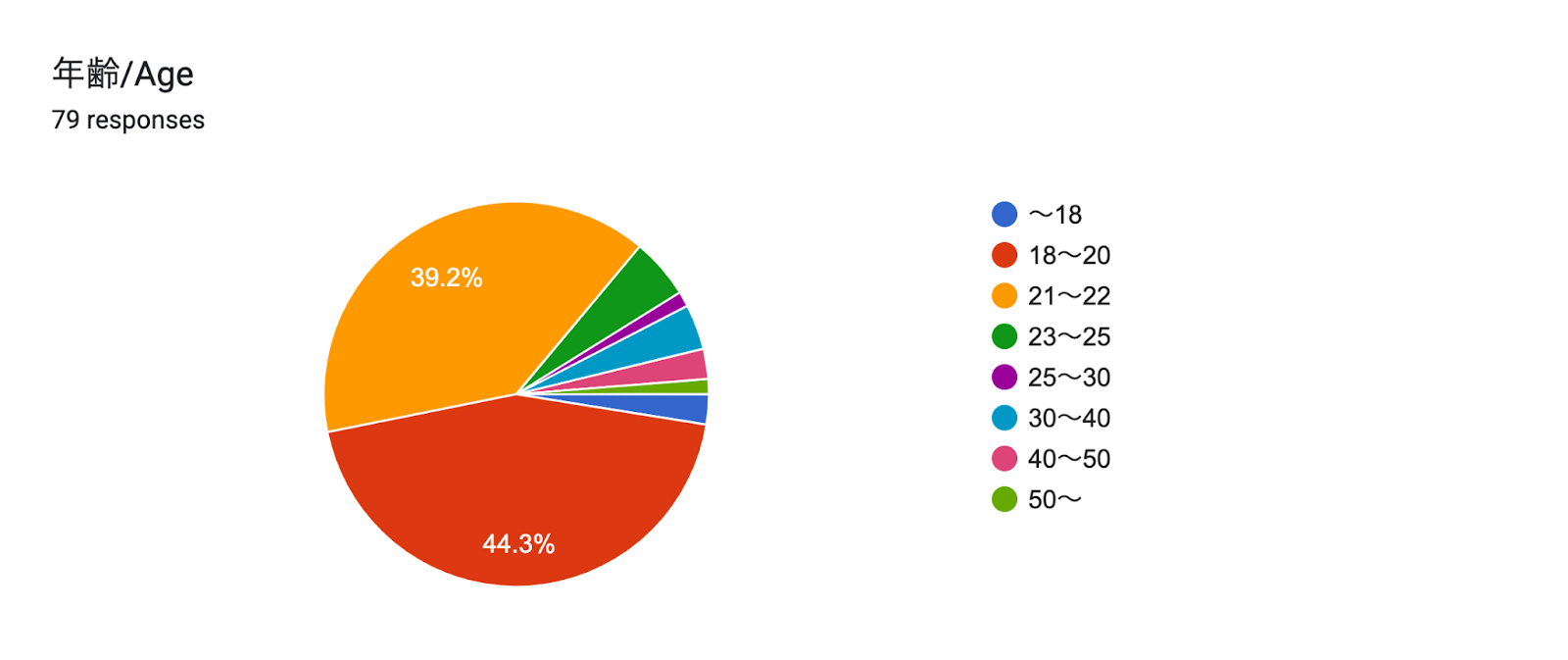
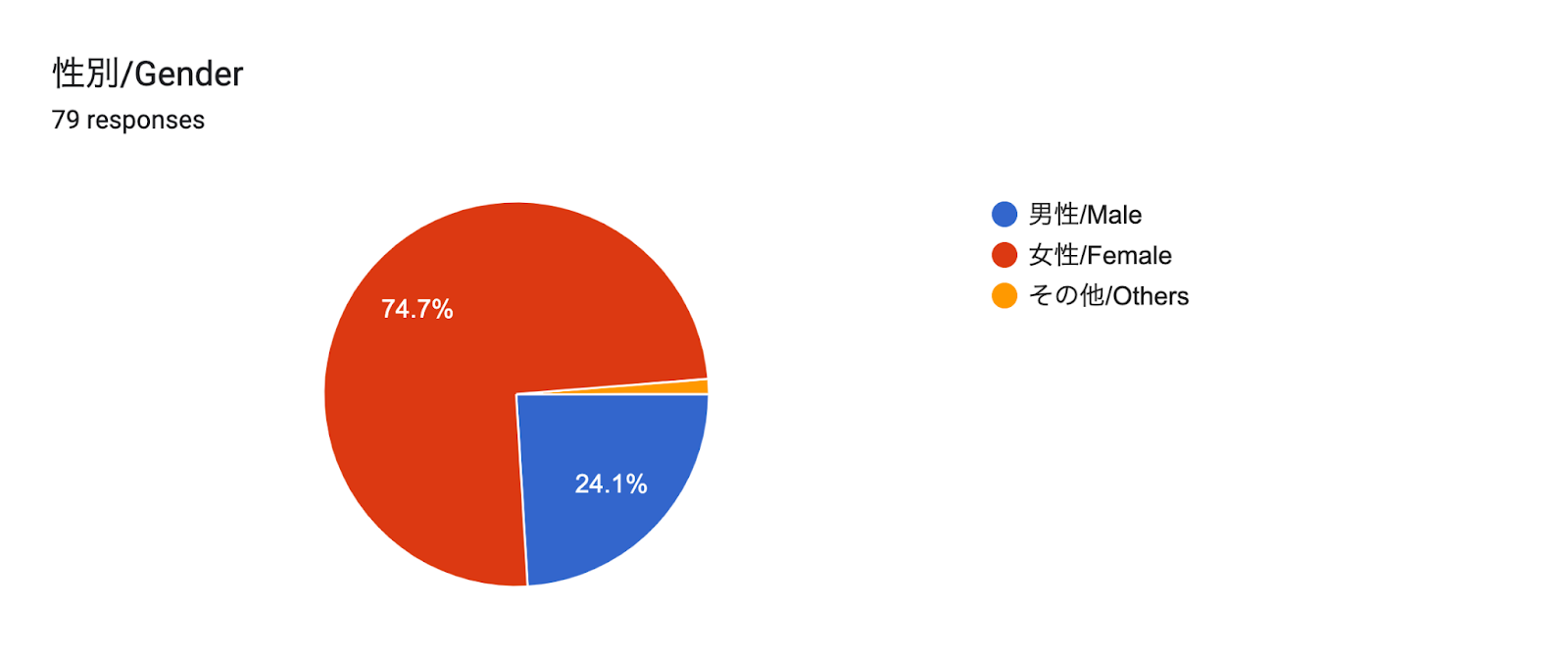

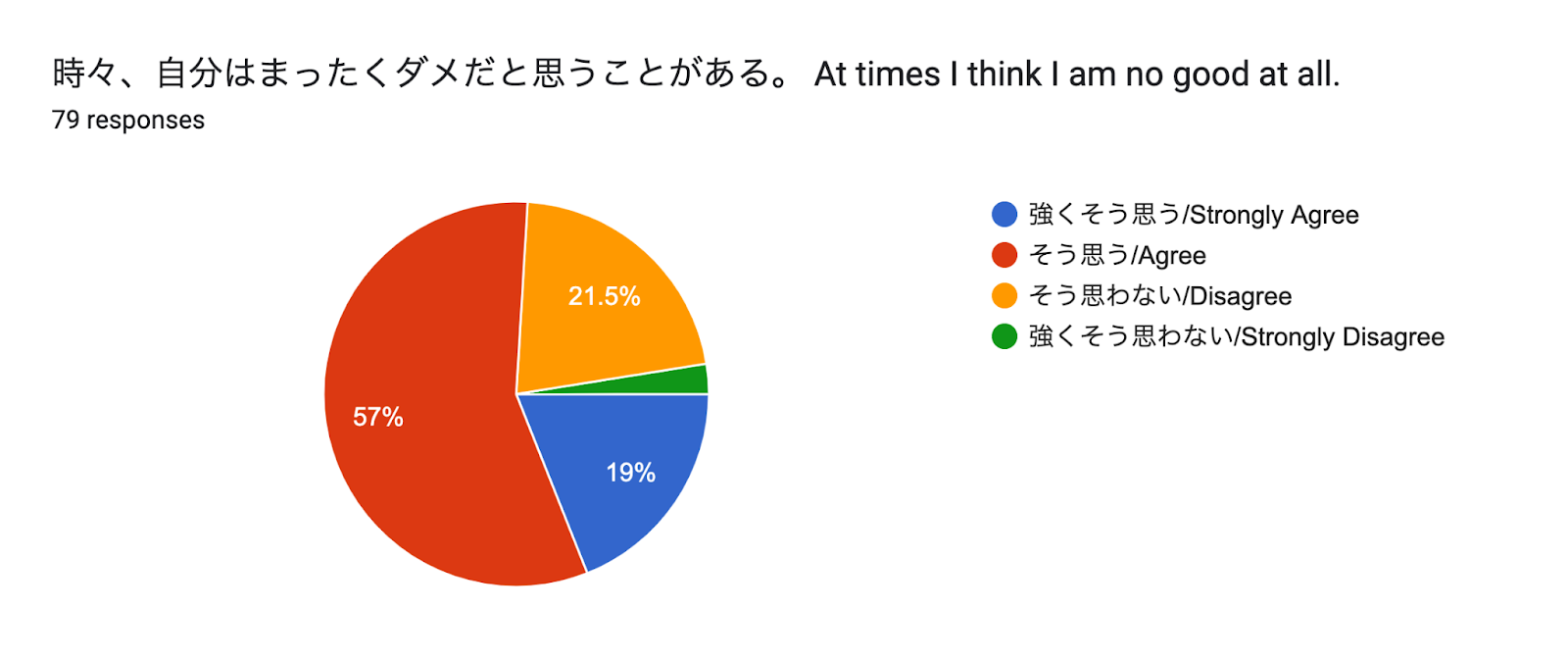

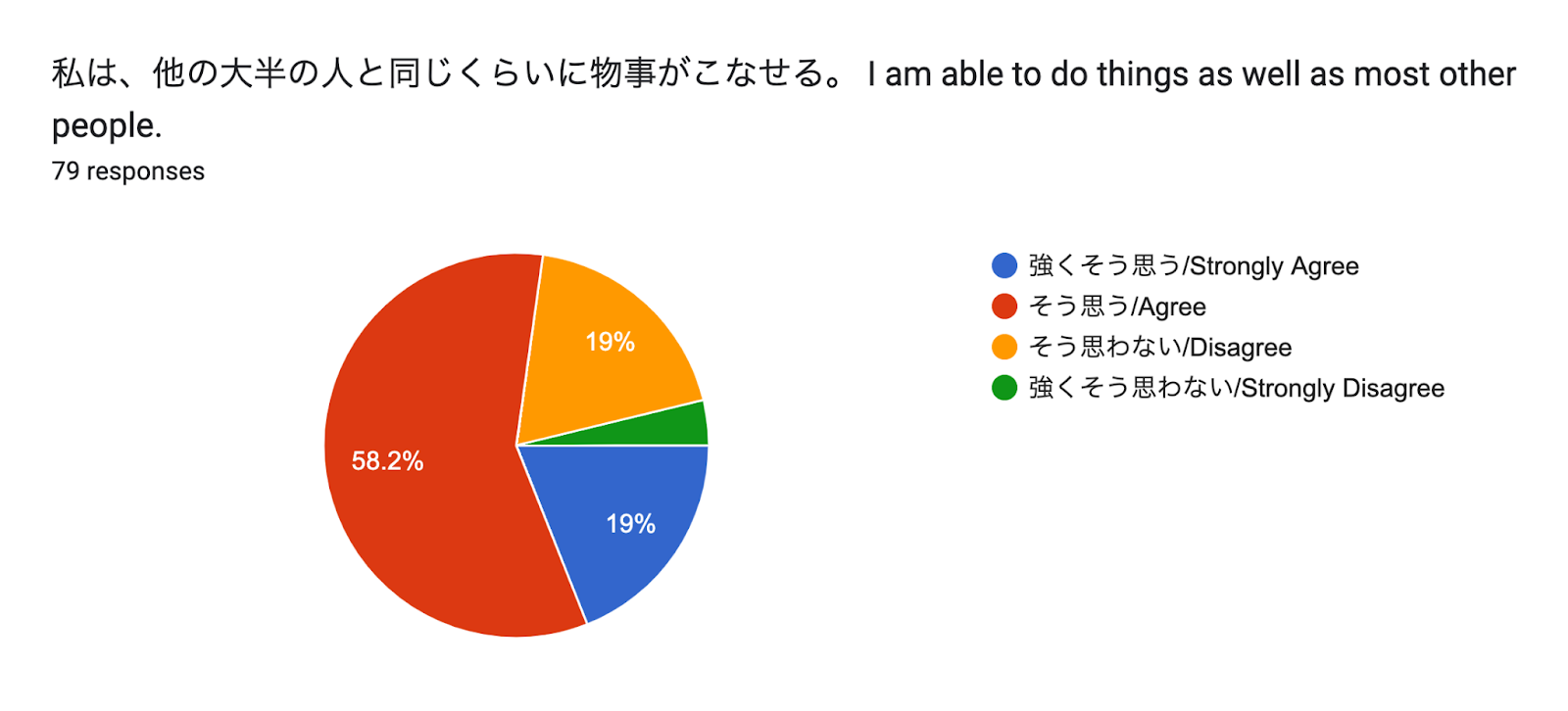
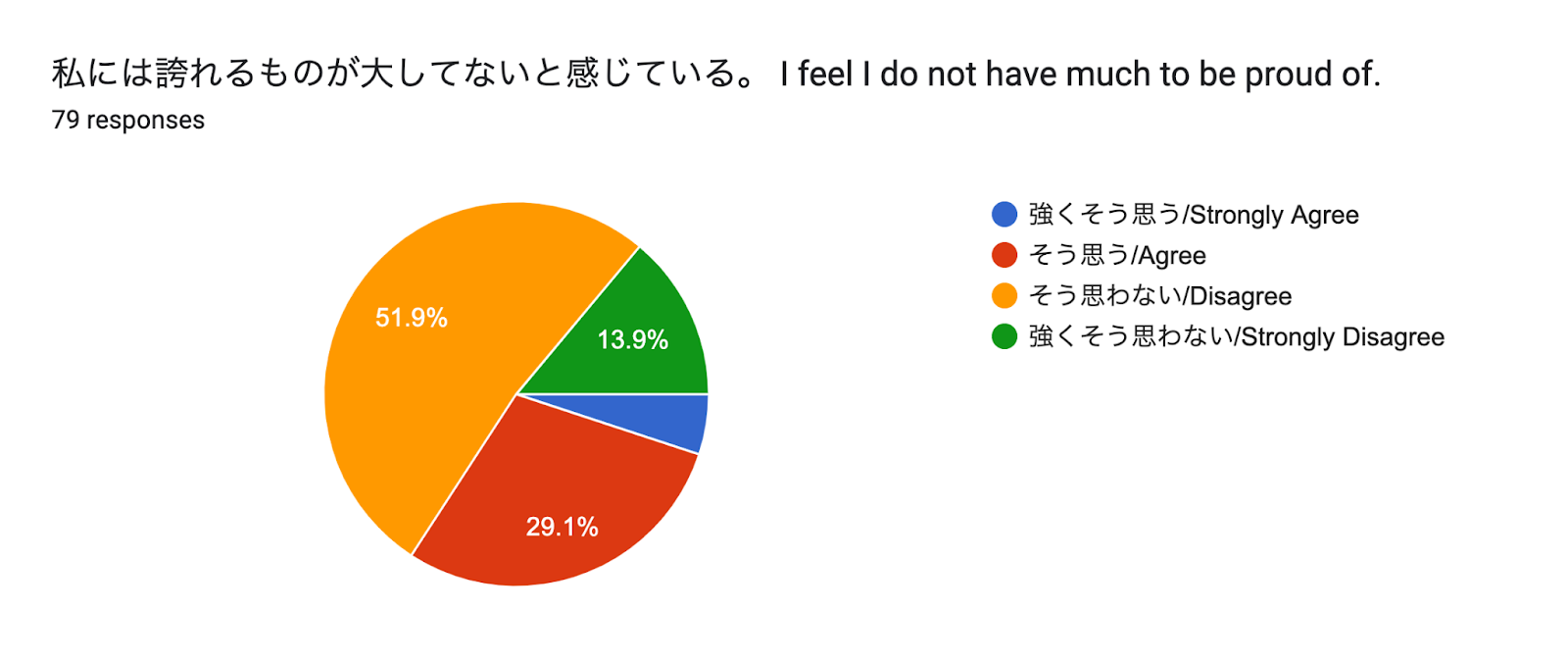
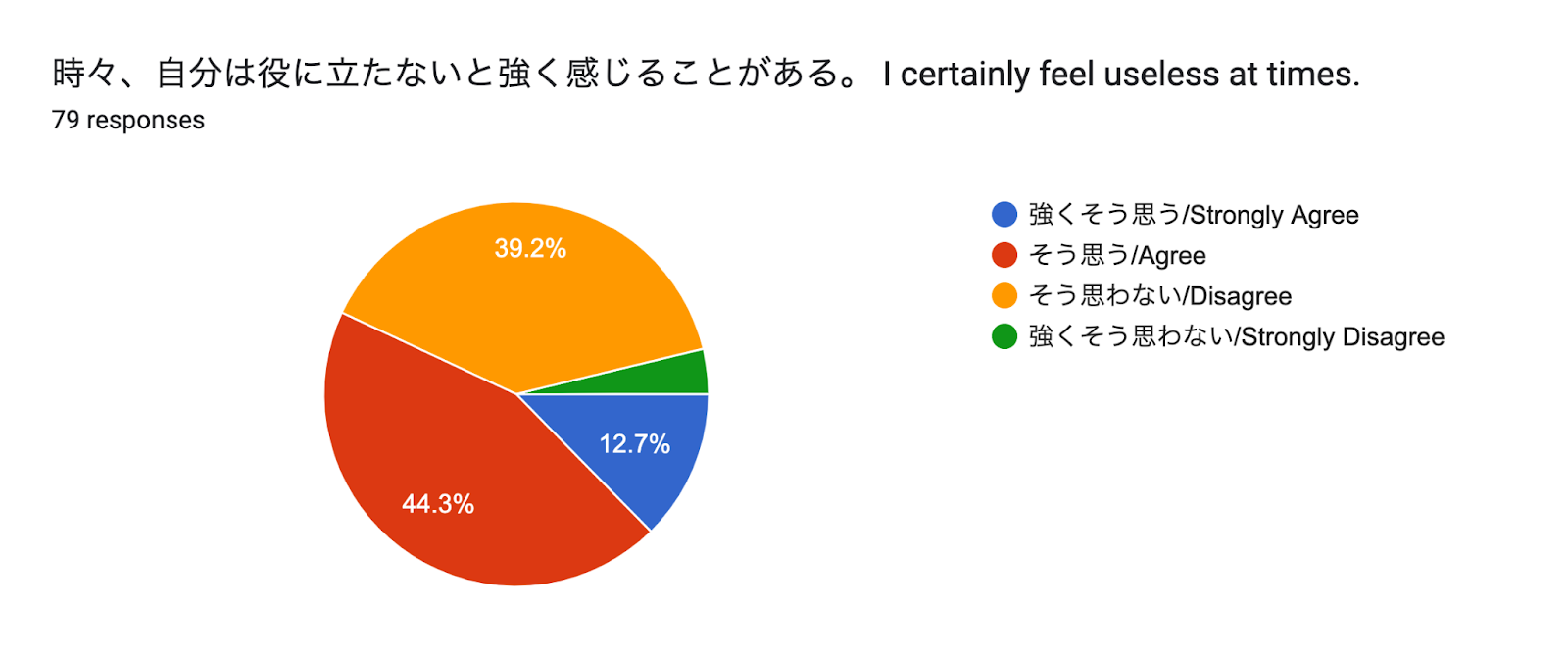
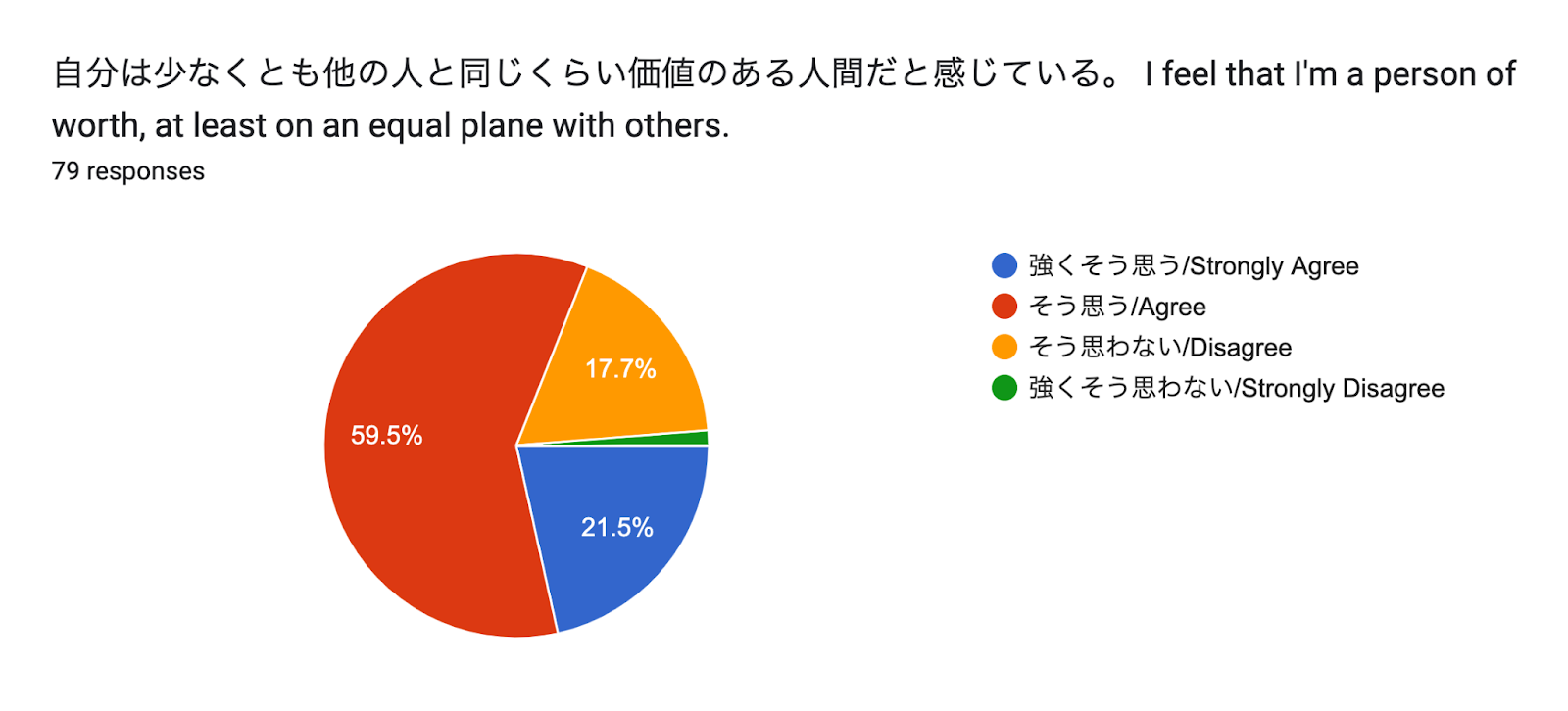




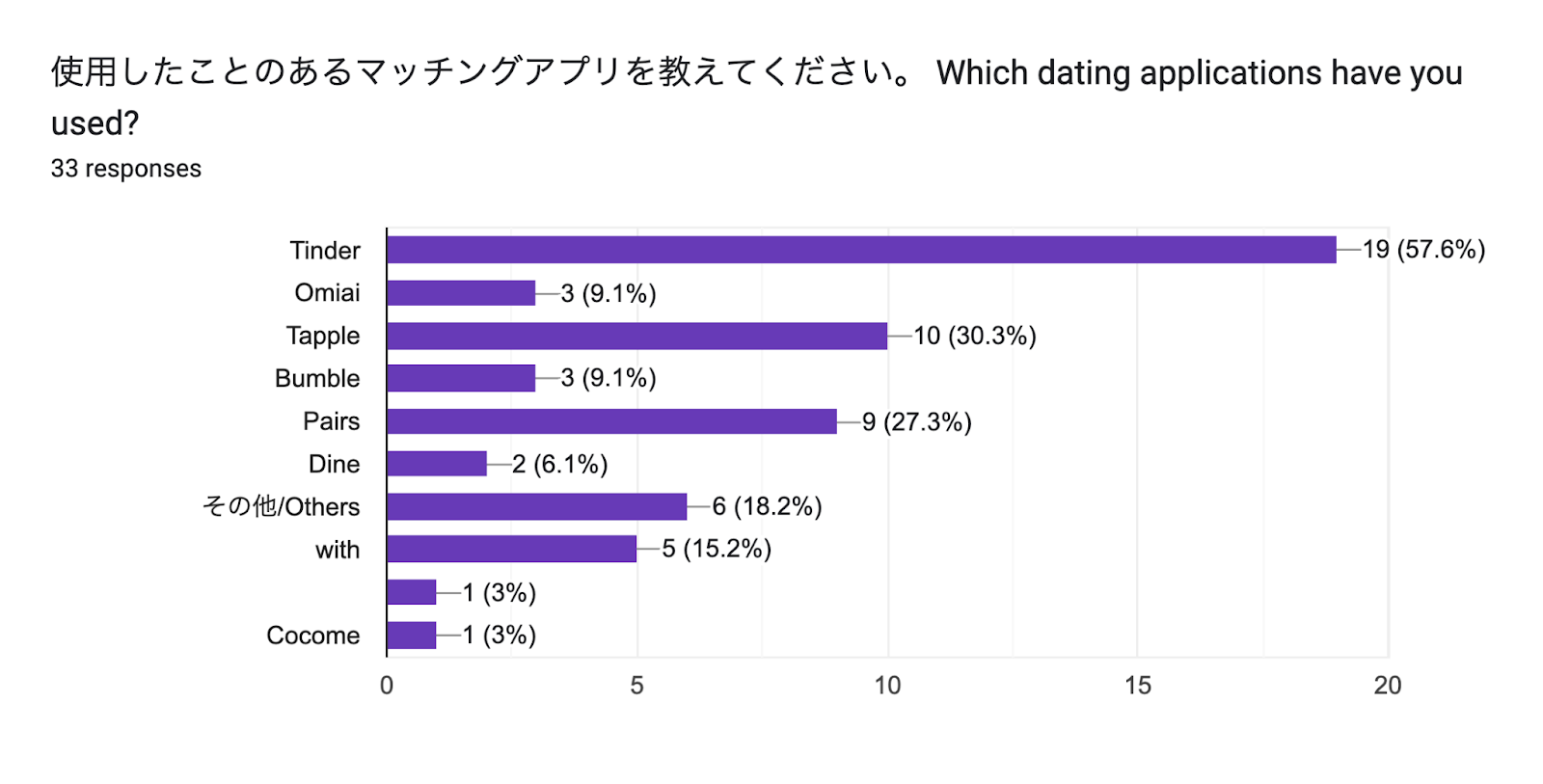


Appendix 3.
Table 2: Responses to the question, “Do you think your self-esteem has increased or will increase as a result of using a dating application?”
(All comments are translated from Japanese to English)
Positive comments | Negative comments |
It would be an opportunity to look at my defects. | Despite attempts, he receives few likes from women and loses confidence in himself. |
People often tell me I am pretty. | When you are first matched with someone of the opposite sex, you feel as if you have been noticed by someone you had never experienced before, which raises your self-esteem, but then you eventually feel a sense of emptiness, as if you are not in the real world. It didn't last long, and I quit, so it's not a bad idea to use it for a period of elation, but it's not a solution to my loneliness. |
Although there are some dating and sexual desires, most people will tell you positive things about themselves. However, it is unlikely that people who already have high self-esteem will further increase their self-esteem by using the app. | The purpose of use was for sexual activity, and the interests were aligned, so there was nothing to go up. |
I get a lot of likes and messages, which makes me feel like I'm popular and boosts my self-esteem. But I also wonder if I'm saying the same thing to everyone. | Because their face determines a person's worth or whether they can have sex. |
I get messages from all sorts of people. | If your self-esteem is high, to begin with, it might go up, but if it's low, to begin with, it's not likely to go up |
| I've only been using it for less than a week, but I haven't noticed any change. |
| I've never had a boyfriend on the app, and I wonder why someone sends me ‘likes’. |
| It doesn't raise my self-esteem. Matching apps are only a selling point; most people want to fulfil their desires or talk about themselves. Therefore, it is necessary for us to keep the conversation going by boosting the conversation and lifting the other person. Furthermore, the other person does not necessarily praise our strengths, so our sense of affirmation does not increase. It is not an exaggeration to say that for some people, affirmation goes down. |
| In the sense of being matched or being told unconditionally that you are pretty, your self-esteem will go up for a moment. However, after a while, I stopped because I am not the type who likes people based on their looks so much, and I felt uncomfortable about being told that I wanted to go out with someone based on their looks alone. |
| The number of likes on Tinder also didn't affect my self-esteem because the accessible version of Tinder doesn't tell you the exact number of likes after 99, so it didn't affect my self-esteem. |










